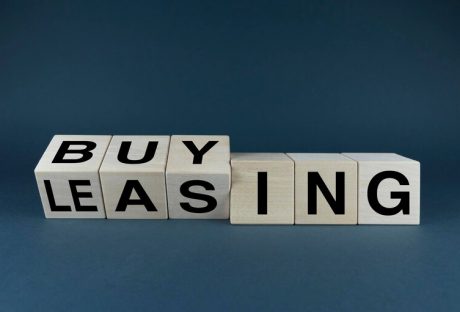Tag: suitability of leasing

Lease Vs Buy: What’s Better For The USA Based Business
Small business owners face numerous considerations when deciding whether to purchase or lease a business facility. Once a business owner identifies their specific facility requirements and successfully locates the ideal property, they encounter another crucial choice: Should they buy or rent the property? This decision arises in two distinct scenarios: First, when the owner of the desired property is open to either selling or leasing it, and second when you have multiple options, some available for purchase and others for lease. To make this decision confidently, it's essential to evaluate the financial aspects and the determining factors that influence the suitability of leasing versus buying a business facility. Comparing The Economics Of Leasing Vs. Buying What should you go for when it comes down to lease vs buy for business? In business decisions, few choices are as pivotal as determining whether to lease or buy assets. This holds for many assets, from real estate to equipment, vehicles, and more. This decision can have significant financial implications for business owners, and understanding the pros and cons of leasing versus buying is crucial for informed decision-making. Let’s explore the economics of these two options, exploring the advantages and disadvantages of each to help business owners make the right choice for their specific circumstances. The Economics Of Leasing Leasing, as a financial arrangement, is a concept that extends beyond the realm of property and includes various assets such as vehicles, equipment, and even software. At its core, leasing is a method of obtaining the use of an asset for a specified period while making regular payments to the asset's owner, whether it's a lessor or a financial institution. The economics of leasing involve several key factors that affect the decision to lease rather than purchase outright. One of the primary economic benefits of leasing is the conservation of capital. When you lease an asset, you avoid the substantial upfront cost of purchasing it. This is particularly advantageous for businesses, allowing them to allocate their capital to other essential operations or investments. For individuals, it means not having to deplete their savings to acquire a costly asset, whether it's a car, a piece of machinery, or even a home. Leasing often offers more predictable and manageable cash flows compared to outright ownership. Lease agreements typically involve fixed monthly payments over the lease term, making it easier to budget and plan for expenses. Tax benefits can also make leasing an economically attractive option. In some cases, lease payments are tax-deductible as a business expense. This can lead to significant tax savings for companies. However, tax benefits can vary depending on the asset being leased and the specific tax regulations in place. However, There Are Economic Drawbacks To Leasing As Well: Long-Term Costs: Over an extended period, leasing can be more expensive than buying, primarily due to the cumulative cost of lease payments. No Equity Buildup: When you lease, you do not build equity in the asset. It remains the property of the lessor. Limited Control: The lessee must adhere to the lessor's terms and conditions, which can be restrictive. The Economics Of Buying The decision to buy an asset, whether a property, a vehicle, or any significant investment, is a fundamental economic choice with both immediate and long-term financial implications. Understanding the economics of buying involves considering various factors that impact the purchase decision and how ownership affects one's financial situation. One of the central economic aspects of buying is the upfront cost. When you decide to buy an asset, you typically need to pay the full purchase price, which can be a substantial one-time expense. This upfront payment represents a significant commitment of financial resources and can affect your liquidity, especially for big-ticket items like real estate or high-end machinery. Buying an asset often means having complete control and decision-making authority over it. You can customize, modify, or use the asset as you see fit. This sense of ownership can be economically empowering, allowing you to tailor the asset to your specific needs or preferences. Mortgages and loans are common financial instruments for buying high-value assets like real estate or vehicles. These arrangements enable individuals to spread the cost of the asset over time. While loans may involve interest payments, they make the purchase more accessible and can be financially strategic. However, Buying Also Has Its Economic Downsides: Higher Initial Costs: Purchasing assets often requires a substantial initial investment, burdening businesses with limited capital. Risk of Depreciation: Some assets, like vehicles and certain equipment, can depreciate over time, impacting their resale value. Maintenance Costs: Owners are responsible for maintenance and repairs, which can be costly. Reduced Flexibility: Selling owned assets can be time-consuming and might not be feasible in rapidly changing business environments. Factors To Consider When Making The Lease Or Buy Decision The lease vs. buy decision is critical and can significantly impact a business's financial health and long-term prospects. To make an informed decision, business owners must weigh several important factors. Here are key considerations to keep in mind: Financial Considerations The financial aspect is often the cornerstone of the lease or buy decision. One of the initial considerations is the upfront costs. Buying a property typically involves a substantial financial commitment, including a down payment, closing costs, and potential expenses for renovations or furnishing. On the other hand, leasing usually requires a security deposit and the first month's rent, which are notably lower than the upfront costs of buying. Another critical financial factor is the monthly expenses associated with each option. While leasing tends to result in lower monthly costs than buying, owning a property often entails higher mortgage payments. However, these payments contribute to building equity in the property. Additionally, the potential for property appreciation is a financial consideration, as owning a property allows you to benefit from the property's value increase over time. Conversely, leasing may increase annual rent, impacting your financial planning. Lastly, the tax implications are significant. Property ownership can provide tax benefits, such as deductions for mortgage interest. In contrast, leasing does not offer these tax advantages but may simplify financial management. Long-Term Goals Your long-term objectives play a pivotal role in the lease or buy decision. Buying might be the more suitable choice if you are interested in benefiting from property appreciation and potentially selling the property for a profit. On the other hand, if flexibility is a priority, such as the ability to relocate or change your living situation without the responsibilities of property ownership, leasing provides greater adaptability. Understanding your long-term goals is crucial in deciding to align with your aspirations. Responsibilities and Maintenance The responsibilities and maintenance associated with each option are essential factors to consider. Property maintenance costs, such as repairs and upkeep, are the responsibility of property owners. Leasing, however, often shifts these responsibilities to the landlord responsible for maintaining the property. Moreover, property ownership allows for customization and renovation, allowing you to modify the property to your preferences. In contrast, leasing may come with limitations on modifying the property, as any alterations typically require landlord approval. These factors highlight the practical aspects of the lease or buy decision and the degree of responsibility you are willing to undertake. Market Conditions The state of the real estate market at the time of your decision is a critical external factor. It can significantly influence the cost-effectiveness of leasing or buying. Buying may be more advantageous in a buyer's market, characterized by lower property prices and favorable interest rates. In contrast, leasing might be the more prudent choice in a seller's market with rising property prices, as property prices may be inflated, making buying less cost-effective. Duration of Stay Your anticipated duration of stay in the property is a key factor. For a short-term stay, leasing is often a more practical option. Buying may not provide enough time to build equity and recover the upfront costs of property ownership. Conversely, plan to stay in the property for an extended period. Buying can be financially advantageous in the long run, allowing you to benefit from property appreciation and build equity over time. Making The Decision The decision to lease or buy should be based on your business's unique needs, financial situation, and long-term goals. Conducting a thorough cost-benefit analysis, factoring in your specific circumstances, and considering how the economics of leasing or buying align with your business strategy is advisable. Read Also: How Business Owners Can Better Utilize Freelance Work 5 Office Organization Tips Every New Business Owners Must Know Alternative Business Financing – What Is It And How Do You Do It?
READ MOREDetails















